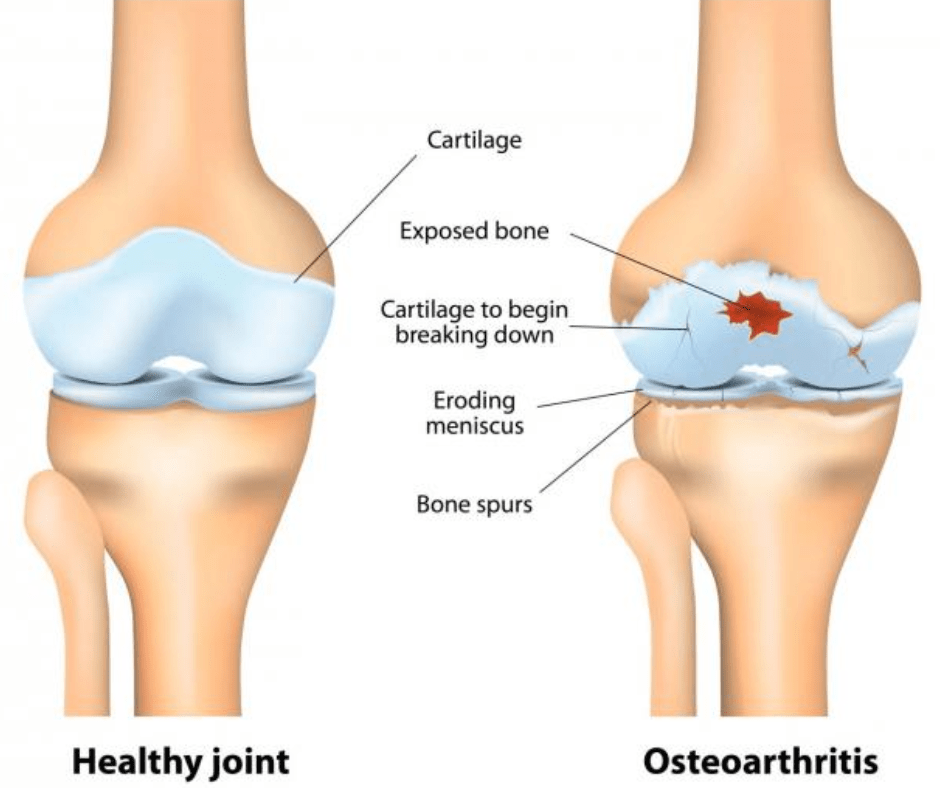Knee osteoarthritis (OA) is a degenerative joint disorder that affects millions of people worldwide, causing pain, stiffness, and reduced mobility. In India, where the prevalence of knee osteoarthritis is substantial, finding effective treatment options is crucial for improving the quality of life for those affected. One emerging and promising approach is stem cell therapy.
The Basics of Stem Cell Therapy
What are Stem Cells?
Stem cells are undifferentiated cells with the unique ability to differentiate into various specialized cell types. They can divide and produce both identical stem cells (self-renewal) and differentiated cells with specific functions. In the context of knee osteoarthritis, the focus is often on mesenchymal stem cells (MSCs) due to their potential to regenerate damaged tissues.
Sources of Stem Cells
Stem cells used in therapy can be derived from different sources, including embryonic tissue, umbilical cord blood, and adipose (fat) tissue. In the case of knee osteoarthritis, adipose-derived stem cells and bone marrow-derived stem cells are commonly employed.
Stem Cell Therapy for Knee Osteoarthritis
Mechanisms of Action
Anti-Inflammatory Effects
Stem cells have potent anti-inflammatory properties. In knee osteoarthritis, chronic inflammation contributes to cartilage degradation. Stem cells can modulate the inflammatory response, reducing the release of pro-inflammatory molecules and creating a more favorable environment for tissue repair.
Tissue Regeneration
The primary goal of stem cell therapy is to promote tissue regeneration. Mesenchymal stem cells have the capacity to differentiate into chondrocytes, the cells responsible for producing cartilage. By introducing stem cells into the affected knee joint, the hope is to stimulate the regeneration of damaged cartilage, leading to improved joint function.
Immunomodulation
In addition to their anti-inflammatory effects, stem cells can modulate the immune system. In knee osteoarthritis, an abnormal immune response can exacerbate joint damage. Stem cells may help regulate the immune system, preventing further deterioration of the joint.
Procedure Overview
Harvesting Stem Cells
The first step in stem cell therapy involves obtaining a sample of stem cells. This can be done through a minimally invasive procedure, such as liposuction to collect adipose tissue or bone marrow aspiration for bone marrow-derived stem cells.
Isolation and Processing
Once the stem cell source is collected, the sample undergoes processing to isolate the stem cells. Advanced laboratory techniques are employed to concentrate and purify the stem cells, ensuring a high-quality cell population for the therapy.
Administration
The purified stem cells are then administered to the patient. In knee osteoarthritis cases, this often involves injecting the stem cells directly into the affected joint. The delivery method may vary, and the number of injections required depends on the severity of the condition.
Efficacy and Safety
Clinical Evidence
Several clinical studies have explored the efficacy of stem cell therapy for knee osteoarthritis. While results vary, many studies report improvements in pain levels, joint function, and quality of life. However, the long-term effects and optimal treatment protocols are still subjects of ongoing research.
Safety Considerations
Stem cell therapy is generally considered safe, especially when using the patient’s own cells (autologous transplantation). However, as with any medical procedure, there are potential risks and complications. It’s essential to consider factors such as the source of stem cells, the expertise of the medical team, and adherence to ethical and regulatory standards.
Stem Cell Therapy Landscape in India
Current Status
Regulatory Environment
India has seen a growing interest in stem cell therapy, with numerous clinics offering treatments for various conditions, including knee osteoarthritis. However, the regulatory landscape is evolving, and concerns about the standardization and oversight of these treatments persist.
Research Initiatives
Indian researchers are actively contributing to the global understanding of stem cell therapy. Collaborations between academic institutions and private clinics aim to advance the field and establish evidence-based practices.
Challenges and Opportunities
Accessibility and Affordability
While the potential benefits of stem cell therapy are promising, accessibility and affordability remain significant challenges. The cost of these treatments can be prohibitive for many patients, limiting widespread adoption.
Ethical Considerations
As with any cutting-edge medical technology, ethical considerations come to the forefront. Ensuring that stem cell therapies adhere to ethical guidelines is crucial to maintaining public trust and advancing the field responsibly.
Patient Experiences and Testimonials
Success Stories
Numerous individuals in India have reported positive outcomes after undergoing stem cell therapy for knee osteoarthritis. These success stories highlight the potential of this treatment to significantly improve the lives of those suffering from joint pain and mobility issues.
Challenges and Unmet Expectations
On the flip side, some patients may not experience the anticipated benefits or may face challenges during or after the treatment. Understanding these perspectives is crucial for refining the therapy and managing patient expectations.
Future Directions and Innovations
Personalized Medicine
Advancements in stem cell research are paving the way for personalized medicine approaches. Tailoring stem cell therapies to individual patients based on their specific genetic and molecular profiles holds great potential for optimizing treatment outcomes.
Combination Therapies
Researchers are exploring the synergy between stem cell therapy and other modalities, such as growth factors, biomaterials, and physical therapy. Combining these approaches may enhance the overall effectiveness of treatment and provide more comprehensive solutions for knee osteoarthritis.
Make a final Decision
Stem cell therapy presents a promising avenue for addressing knee osteoarthritis in India. While the field is still evolving, the growing body of research and positive patient experiences underscore its potential to revolutionize the treatment landscape. As the regulatory framework develops and scientific understanding deepens, stem cell therapy could become a mainstream option for individuals seeking relief from the debilitating effects of knee osteoarthritis. However, it is crucial to approach this evolving field with caution, emphasizing rigorous research, ethical practices, and a commitment to advancing patient care in a responsible and inclusive manner.



